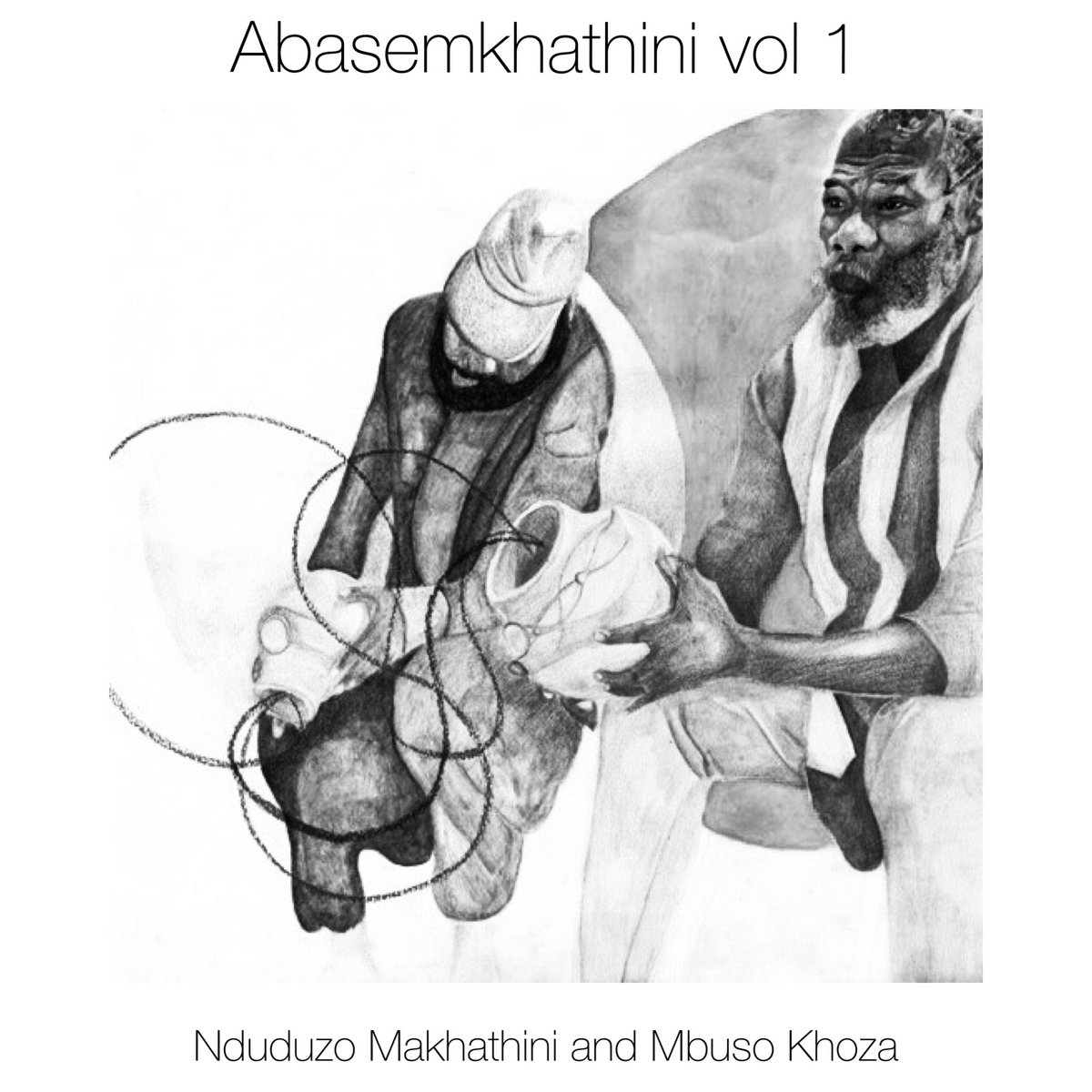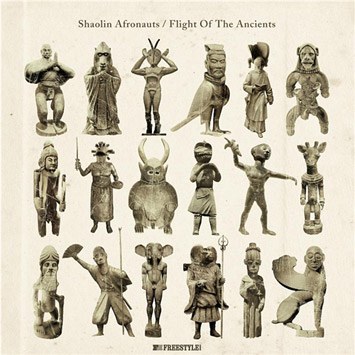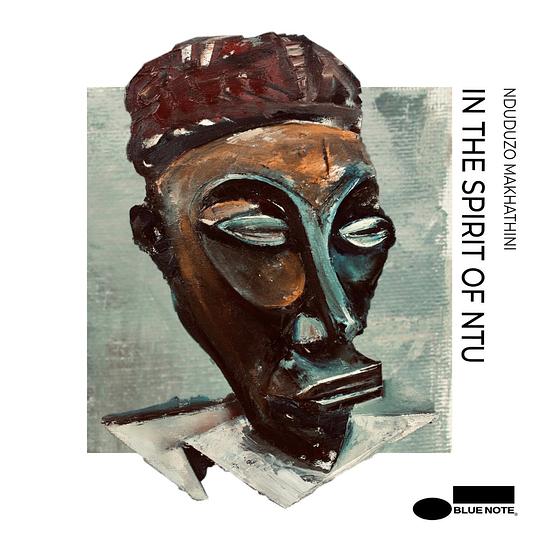On his milestone 10th album, pianist, composer, improviser, and healer Nduduzo Makhathini distills a decade’s worth of creative output into an offering that reflects upon both his and his forebearer’s footsteps. “This whole journey started in 2012, when I went to studio to record my debut album,” he tells Apple Music. “This is me summarizing my journey. This is the moment for a bird’s-eye view of the recurring themes and dialoguing that’s been taking place.”
In the Spirit of Ntu muses on various ideas—from a range of disciplines—that collectively shape us. “An underpinning concept of ubuntu is that everything that lives carries vital force, and this vital force is what counts as ‘Ntu,’” Makhatini explains. “I’ve found that the hinge that connects all African art, music, religions, worldviews, and histories is this notion of Ntu. This is the part the colonial system was not able to erase. This album is an intervention to hold on to the things that refused to be removed.”
Crafted by a talented young lineup, these 10 tracks situate Makhathini’s ideas in the realm of sound. “I was grappling with what it means to locate the sonic inside of these conversations,” he says. “You exist in the context of the whole, and that became the underpinning conceptual view towards the bandstand—all the musicians are younger than me, to build continuity within that shared ‘insideness’ of this cultural sphere.” Here, Makhathini breaks down key tracks from the album.
“Unonkanyamba”
“When I was growing up, there was this myth that if there were heavy quakes, Inkanyamba [the serpent] was emerging from beneath the earth. When it emerges, there’s no way you can survive, and we were told we couldn’t see it cause we’d die immediately. As a kid, I’d internalized this as a masculine energy. Here, I use the idea of ‘Uno’ as pointing towards a different polarity. What if these energies were feminine? Anything that has to do with water, we consult Nomkhubulwane—that’s a deity or divinity for rain. There’s a sense in which the arising of Unonkanymaba could be seen as a metaphor for all the things that could possibly emerge from beneath the earth.”
“Mama” (feat. Omagugu)
“This whole album is underpinned by Ntu configured as essence, and essence as a space of origin. There’s always this feminine energy surrounding the womb and water. ‘Mama’ is a human manifestation of what Unonkanyamba would mean at a cosmic level. My wife, Omagugu, composed [this song] for my mother-in-law, who got sick and passed away. It’s paying tribute to a mother in a spiritual form—as part of the lineage of ancestors that can make interventions on our behalf. The sonic arrangement starts with a gentleness, then builds, almost like a fetus growing in the womb. The break is the idea of giving birth as something that is high frequency. Though it tries to give a sonic feeling of what it means to be a mother, it asks what it means to lose one.”
”Amathongo”
“In English, we say you’re in ‘deep sleep,’ which has nothing to do with being elsewhere—in a world that functions. In isiZulu, we say ‘usebuthongweni,’ which means he or she is one with the ‘star gods’ or amathongo. That says something about sleep as this moment where we’re actually alive in another reality. Ntu speaks about how we collapse these two realities. So, when I say, ‘Vumani vumani vumani weZangoma,’ it’s because you have to surrender. Through this invocation of ‘ukuvuma’ [‘to agree or concur’], a collective agreement enables a ritual state where time and space are suspended. When I grew up, jazz musicians had no sense of cultural situatedness. There was no relationship between amathongo and the things that we see around us, until Busi Mhlongo and Zim Ngqawana arrived. They brought these connections in a more deliberate way, so this is part of that codification.”
“Emlilweni” (feat. Jaleel Shaw)
“In various creation stories on the [African] continent, the earth was once filled with fire. When water emerged, all the fires escaped to the underworlds as a sign of obedience. As we speak about the underworlds, we also speak about the location of our ancestors, so it’s interesting to me how South Africans use fire as one of our codes for expressing our tiredness. We're so tired, we’re telling our ancestors that we need bigger interventions. This was the language post-coloniality and still is. Throughout these time periods, we’ve viewed musicians as operating from the edges of these burning fires—to propel the fire burning in the middle. Given the urgency of things to change in a very fragile system, there’s an even deeper urgency for musicians to enunciate from within these burning fires instead of from around them.”
“Omnyama”
“When I first heard Mfaz’Omnyama, his voice would just cut through. He always projected something that was distant from here—something untouchable by the systems. Bab’ Mfaz’Omnyama, Mam’ Busi Mhlongo, and Bab’ Phuzekhemisi were unlocking codes, and if you heard that, that was your access. They were like, ‘I’m giving this to you, and the only way to enter is for you to hear, to sense.’ I think of Maskanda musicians as a radical movement. To pick up a Western classical instrument and do a full-on colonization of it is radical—the guitar was speaking English, and they made it speak isiZulu! Through this unconventional tuning, they were telling us something deeper about how to make these tools obey your own story.”
“Senze’ Nina”
“We’ve seen how men are targeted in a deep way, even during apartheid. We grew up without our fathers, and these were the creations of dysfunctionality in the Black family. There are problematic constructs we’ve created ourselves, too, and men really need to add gentleness to their vocabulary of masculinity. ‘Senze’ Nina’ is about the truth that at the very core of every man lives a gentleness that is inherent just by the mere fact that they were born of a mother. I propose the idea of the making of a new man when that gentleness needs to be reawakened. Some of the most powerful things are projected with a gentleness!”
“Ntu”
“In the Spirit of Ntu starts with all these things that are clashing and conflicting, and it ends with this gentle solo piano—this very utopian place. All the things that happen on this album are things that you can see, but this last song leads into a dream and happens elsewhere. This music is one of those ritual technologies that takes us to different locations, where you enter a space and come out of it different. Ntu is that reconfiguration of self.”


